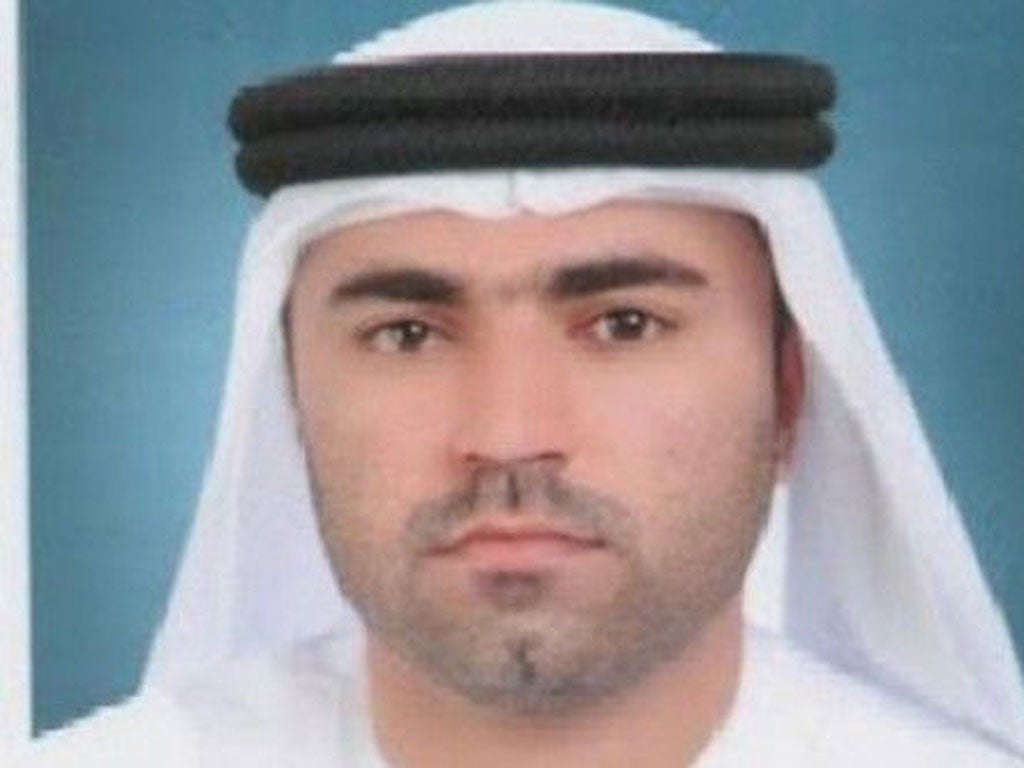UAE deports rights activist Ahmed Abdul Khaleq in clampdown on dissent

Your support helps us to tell the story
From reproductive rights to climate change to Big Tech, The Independent is on the ground when the story is developing. Whether it's investigating the financials of Elon Musk's pro-Trump PAC or producing our latest documentary, 'The A Word', which shines a light on the American women fighting for reproductive rights, we know how important it is to parse out the facts from the messaging.
At such a critical moment in US history, we need reporters on the ground. Your donation allows us to keep sending journalists to speak to both sides of the story.
The Independent is trusted by Americans across the entire political spectrum. And unlike many other quality news outlets, we choose not to lock Americans out of our reporting and analysis with paywalls. We believe quality journalism should be available to everyone, paid for by those who can afford it.
Your support makes all the difference.A stateless resident of the United Arab Emirates, who had never set foot outside the country, was yesterday escorted on to a plane and deported to Thailand, in a clear message that speaking out will not be tolerated.
The oil-rich nation has avoided the revolts that have gripped other parts of the region but has stepped up its campaign to silence critics, dismantling political groups and jailing dissenting voices.
A high-profile activist, Ahmed Abdul Khaleq, was arrested for a second time in May, but as he is one of the UAE's thousands of "bidoon" – literally meaning "without" in reference to their lack of citizenship – his situation was particularly perilous. He was told he was to be deported and given a choice for his exile – Iran, Pakistan, Bangladesh, India or Thailand.
"This is my first time to leave the UAE and it's going to be forever," the 35-year-old told The Independent before boarding his plane in Abu Dhabi. "I've never even been to the airport before, I have no idea about travelling." With just 10,000 Emirati dirhams (£1,740) scraped together by his family to save him from destitution, he is understandably nervous about what the future holds.
"I don't know anyone, I will be a stranger there," he said. "I'm very sad because I'm leaving my family, my country and going to a country I don't know anything about."
Between 10,000 and 100,000 bidoon live in the UAE. Most trace their roots to Iranian or South-east Asian traders who travelled to the emirates before the state was formed in 1971, or to nomads who failed to register for citizenship or lacked tribal affiliations. They complain of discrimination, are forced to pay for education and healthcare that comes free to Emiratis and, without passports, are unable to leave the country.
Mr Abdul Khaleq ran a popular blog that campaigned for bidoon rights, and was one of the "UAE 5", a group of activists who spent eight months in jail last year before being pardoned.
"Ahmed Abdul Khaleq has never visited Thailand, knows no one there and has been forced to leave his family behind in the UAE," the Emirates Centre for Human Rights said in a statement yesterday. "This is a clear message from the UAE authorities that activism that opposes the state security apparatus will not be tolerated and will be dealt with ruthlessly."
The UAE has also stepped up its clampdown on members of a Muslim Brotherhood-affiliated group called Al-Islah, amid paranoia that it poses a threat to power. With 15 members already in jail, at least seven more were detained in an "aggressive" wave of arrests yesterday, local human rights activists said. The UAE Ministry of Interior did not return calls for comment. The state news agency WAM said that warrants had been issued for members of a group that "aims to commit crimes against security".
Though relieved to be out of jail, for Mr Abdul Khaleq the deportation is just the beginning of his worries. He has just a three-month visit visa, and his future remains uncertain.
"They are afraid because I'm speaking up for my rights and many people like me don't have a nationality," he said. "If I have committed a crime then take me to the court, but to have to leave my home, this is not fair."
Join our commenting forum
Join thought-provoking conversations, follow other Independent readers and see their replies
Comments